EU laws on supplements
“Food supplements” are concentrated sources of vitamins and minerals that are supplemented to the diet.
Supplements are taken daily by many people to become healthier and more energetic.
Nevertheless, the European Union discourages the intake of dietary supplements.
It is prohibited by European Law to claim that vitamins and minerals are required to obtain a “balanced and varied diet”.
Additionally, it is forbidden to state that vitamins and minerals can prevent, treat, or cure any disease (see article 6.2 below).
EU Directive* 2002/46/EG – art. 6.2
“The labelling, presentation, and advertising must not attribute to food supplements the property of preventing, treating or curing a human disease, or refer to such properties.”
*Directive: A legislative act that sets out a goal that the EU countries must achieve. However, it is up to the individual countries to devise their own laws on how to reach these goals. (Source: europa.eu)
The European Directive
This law was introduced in 2002 within the European Directive, which is the framework for national regulations on food supplements.
The EU countries must ensure that the marketing of food supplements adheres to the rules stated in the Directive.
Furthermore, the Directive orders the European Commission to set maximum permitted levels of vitamins and minerals in food supplements as if these micronutrients would be harmful for us.
EU Directive2002/46/EG – art. 5.1
“Maximum amounts of vitamins and minerals present in food supplements per daily portion of consumption as recommended by the manufacturer shall be set, taking the following into account:
(a) upper safe levels of vitamins and minerals established by scientific risk assessment based on generally accepted scientific data, taking into account, as appropriate, the varying degrees of sensitivity of different consumer groups;
(b) intake of vitamins and minerals from other dietary sources.”
EU Directive2002/46/EG – art. 5.2
“When the maximum levels referred to in paragraph 1 are set, due account should also be taken of reference intakes of vitamins and minerals for the population.”
The formulation of the law
After 22 years, the European Commission will continue and finalize a draft regulation. It is planned to complete this draft in the first quarter of 2024.
Before this can be done, the European Commission needs to consult the European Food Safety Authority (EFSA) which provides advice on food-related risks. The EFSA has developed a methodology to give an opinion about the upper safe levels of vitamins and minerals for daily use.
Nevertheless, this methodology completely ignores the health benefits of vitamins and minerals and their importance for human health. The EFSA only takes into account the possible risks to the most sensitive or vulnerable populations. As a result, the maximum permitted levels that potentially will be established will be extremely low. This could deprive the vast majority of the population of numerous health benefits.
The EFSA uses the same risk analysis to determine the maximum tolerable amounts of vitamins and minerals as toxins, which are detrimental to the human body.
Furthermore, the model used by EFSA has never been subjected to proper scientific assessment.
Implemented maximum levels
At this moment, each EU country is still allowed to decide if they implement maximum levels within their country or not.
Nevertheless, within a few years, when the regulation is implemented, this freedom of choice will disappear totally.
When the new maximum values become mandatory all over Europe, this will be a serious threat to our health.
Neither the national governments nor the European Parliament have much influence on this decision-making process.
The European Commission only needs to take note of the advice of the Committee on Plant, Animals, Food and Feed (PAFF committee).
This PAFF committee consists of experts from the EU countries who are not democratically elected.
They can, under certain conditions, block the adoption of a draft implementing act.
If the draft is disapproved, the European Commission will either send it to an appeal committee or will revise the draft and send it back to the same committee.
The way the committees in general work receives a lot of criticism.
This is because decision-making is opaque, giving lobbyists many opportunities to influence legislation through backroom deals.
So a comittee rarely brings in new viewpoints that go against the draft act made by the European Commission.
This is why the future of maximum permitted levels of vitamins and minerals in food supplements is almost entirely in the hands of the European Commission and the EFSA.
Vitamin and mineral deficiency
The above suppressive measures seem in conflict with the current situation given that various studies show there are widespread vitamin and mineral deficiencies.
The quality of our food has deteriorated significantly because of the way we farm.
Intensive and chemical farming with fertilizers and pesticides and early harvesting, lead to low vitamin levels in fruits and vegetables.
The industrial processing of food further impoverishes our nutrition.
Examples of deficiencies reported are vitamin A, vitamin B12, vitamin D, magnesium, and potassium.
The depletion of vitamins and minerals can cause serious diseases!
- Night blindness —> due to Vitamin A deficiency
- Beriberi —> due to lack of Vitamin B1
- Pellagra —> due to a deficiency of Vitamin B3
- Pernicious anaemia —> due to a deficiency of Vitamin B12
- Scurvy —> due to a deficiency of Vitamin C
- English Disease —> due to a deficiency of Vitamin D
It is very likely that less serious physical and mental states can also be caused by deficiencies.
In the Netherlands almost two third of the population is chronically ill.

*Statistics obtained from the RIVM show that 10.3 million people in the Netherlands now have one or more chronic conditions.
Why is it not allowed to speak freely about the benefits of supplements?
Surprisingly, the usage of vitamins and minerals is suppressed while knowing the effect that deficiencies can cause.
There is only one industry that benefits from the disastrous statistics on chronic conditions: the pharmaceutical industry.
This industry wants to make as much revenue as possible by selling as many medical drugs as possible.
By discouraging the usage of supplements, and minimizing the maximum permitted levels of vitamins and minerals, the pharmaceutical industry can increase its sales.

The Corporate Europe Observatory (CEO) is a research group that exposes the influence of companies and the lobby groups of the pharmaceutical industry in EU policy-making.
A 2021 CEO publication shows that more than 290 lobbyists are active in the European capital.
With a budget of at least €36 million, they defend their industry’s interests.
With such an army of lobbyists, it is irrefutable that the pharmaceutical industry has more influence on the creation of European regulations than we as interested citizens.
This is why these lobbyists are so successful in disparaging food supplements and keeping their healing power a secret from the public.
The Alliance for Natural Health stands for individual freedom of choice regarding our Health.
It is promoting the Micronutrient Risk Benefit Model (MRB Model) to counterbalance the development in the European Union to greatly reduce the maximum permitted vitamins and minerals through harmonization.
See the video below.

